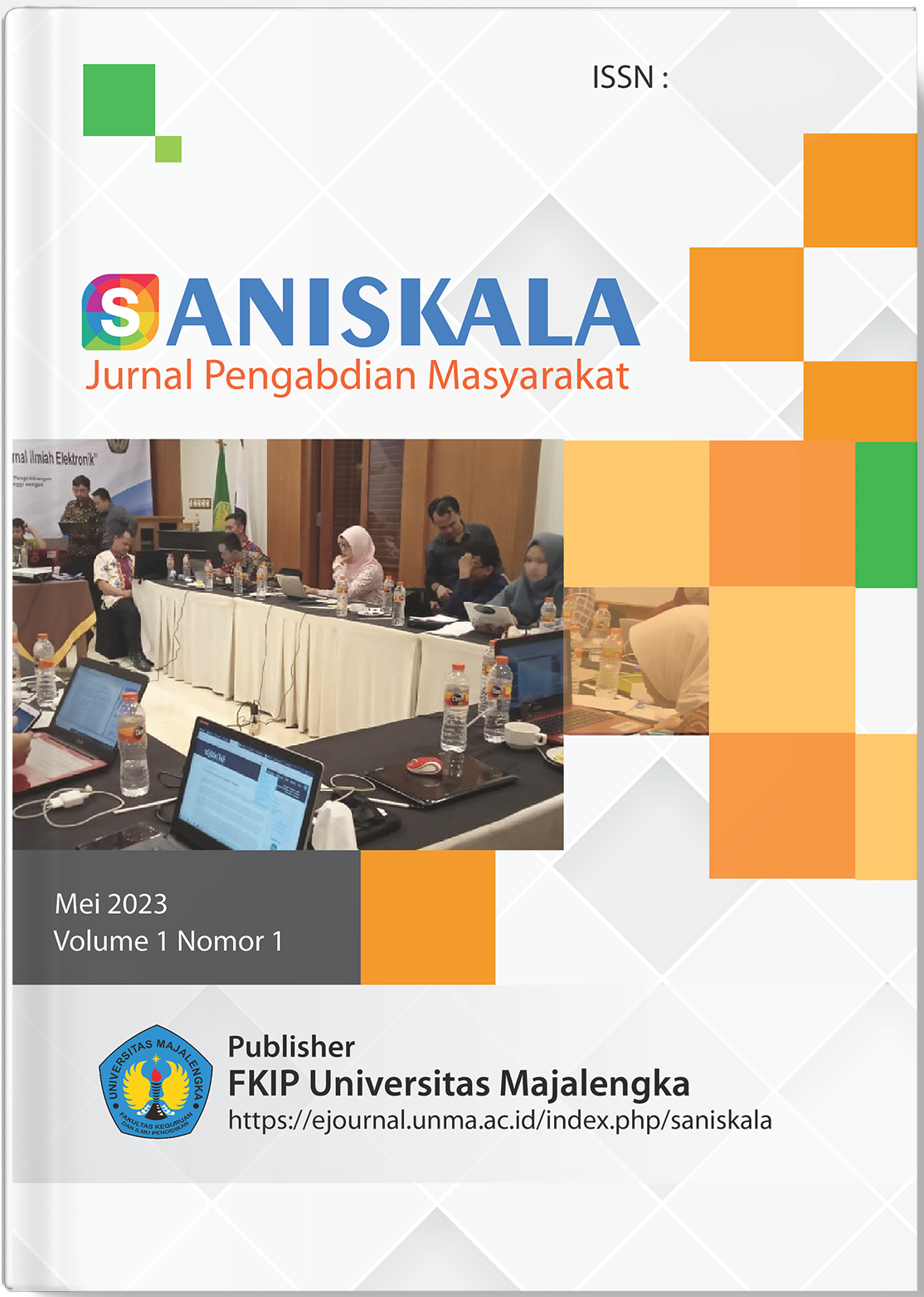Games For Education: Peningkatan Kemampuan Digital Guru di SMK Amal Bakti, Jatimulyo
DOI:
https://doi.org/10.31949/jsk.v1i1.5522Abstract
Innovative and interesting learning is an important requirement in the current educational context. One alternative way is to apply games by means of the Wordwall application as a learning digital tool. This article focuses on community service in implementing Wordwall in learning and explores its benefits in an educational context. The methods used include counseling, training, and assisting in using Wordwall in the classroom. The results of community service show that the use of Wordwall in learning can increase student participation, learning motivation, and understanding of concepts. In addition, the use of Wordwall also provides an opportunity for teachers to integrate technology into learning, increases creativity in compiling learning content, and provides an interesting learning experience for students. However, there are also some challenges encountered in using Wordwall, such as limited access to technology and teacher expertise in using the application. Therefore, suggestions for teachers in using games for education, such as Wordwall, include increasing teachers' digital competence, selecting and developing learning content according to student needs, and monitoring the impact of using games for education. This article is expected to provide insights and recommendations for teachers in utilizing Wordwall as an innovative and effective learning support tool.
Keywords:
games for education, academic achievement, learning motivation, digital technology, wordwallDownloads
References
Afrianto, A., Parjito, P., Kasih, E. N. E. W., Azahra, R. R., & Kaban, S. P. P. (2022). Alternatif Pengelolaan Pembelajaran Dalam Jaringan: Google Sites. Madaniya, 3(4), 776–783.
Bannister, N. A., & Fourie, A. W. (2021). Implementing Wordwall, a digital gamified tool, in the teaching of natural sciences in Grade 7. South African Journal of Education, 41(1), 1–12.
Çakır, R., & Çakır, H. (2018). The effectiveness of computer games on students’ mathematics achievement: A meta-analysis. Computers & Education, 116, 64–79.
Chamberlin, B., Allred, J. H., & Arora, A. (2012). The impact of educational video games on student achievement. Journal of Educational Computing Research, 46(4), 409–419.
Coşkun, M. S., & Yalın, H. İ. (2022). The Effect of Wordwall on Students’ Vocabulary Learning in English Classes. Journal of Computer and Education Research, 8(16), 21–38.
de Freitas, S., & Giannakos, M. N. (2015). The effectiveness of educational games: A review of the literature. Educational Technology & Society, 18(3), 178–197.
Ipek, C., & Altun, A. (2019). An Investigation of the Effects of the Wordwall Tool on Academic Achievement and Motivation in Social Studies Education. Journal of Education and Learning, 8(4), 444–452.
Kalan, M., & Kılıçkaya, F. (2020). Enhancing Learning Experience Through Gamification: A Study on Wordwall. Universal Journal of Educational Research, 8(2), 441–451.
Kasih, E. N. E. W., Suprayogi, S., Puspita, D., Oktavia, R. N., & Ardian, D. (2022). Speak Up Confidently: Pelatihan English Public Speaking Bagi Siswa-Siswi English Club SMAN 1 Kotagajah. Madaniya, 3(2), 313–321.
Kerçin, S., & Akpınar, Y. (2021). Integration of Wordwall for Vocabulary Learning: A Study with Pre-service English Teachers. Journal of Education and Future, 18(1), 91–106.
Li, Q., & Fletcher, J. D. (2016). Effectiveness of game-based learning interventions in K-12 STEM education: A meta-analysis. Journal of Educational Computing Research, 54(5), 657–680.









